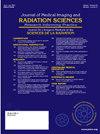汇报在支持、保留和教育放射学学生中的作用:一项探索性的叙述回顾
IF 2
Q3 RADIOLOGY, NUCLEAR MEDICINE & MEDICAL IMAGING
Journal of Medical Imaging and Radiation Sciences
Pub Date : 2025-05-09
DOI:10.1016/j.jmir.2025.101971
引用次数: 0
摘要
临床实习对放射学学生的实践和专业技能的发展至关重要。然而,它们也可能是压力的主要来源。从安全的课堂环境中的理论学习到临床实践中不可预见的现实的转变可能是具有挑战性的。这篇叙述性综述旨在探讨汇报在基于模拟的教育(SBE)和临床汇报(CD)背景下的作用,强调它们在支持、保留和教育放射学学生方面的相关性,通过改善他们在临床实习期间的经验。方法利用PubMed、Scopus、Cochrane Library、CINAHL、MEDLINE等数据库进行文献检索。关键搜索词包括放射照相、学生、汇报、恢复力、保留、支持和情感健康。由于放射学特异性研究有限,搜索范围扩大到包括更广泛的医疗文献,优先考虑过去十年的论文。结果SBE后的汇报使学生能够处理情绪、反应,并为临床实习中的类似情况做好心理准备。在x线摄影课程中加入SBE汇报可以帮助学生熟悉汇报的结构和目的。CD在x线摄影中的益处还没有得到很好的研究或证实。来自其他卫生专业的更广泛的研究强调了乳糜泻在促进恢复力和支持个人情感和心理健康方面的潜力。常规CD可以为反思和表达情感提供一个支持性的、安全的空间。在具有挑战性的事件后进行的提示性CD,应由训练有素的辅导员在心理安全的环境中进行。如果有多名学生参与,小组汇报可能比单独讨论更有效。辅导员应该为情感表达创造一个安全的空间,避免强迫学生透露创伤经历的详细描述,并在必要时提供后续支持。结论针对放射专业人员面临的独特挑战,建立汇报框架可以更好地帮助学生应对临床实习的情感需求。未来的研究可以探讨放射学学生和教育工作者对临床述职的看法,并评估具体述职模式在实习前、实习中和实习后支持学生的可行性和有效性。这些知识可以为制定正式的指导方针提供信息,以更好地教育和留住放射学学生。本文章由计算机程序翻译,如有差异,请以英文原文为准。
The role of debriefing in supporting, retaining, and educating radiography students: An exploratory narrative review
Introduction
Clinical placements are essential for the development of practical and professional skills for radiography students. However, they can also be a substantial source of stress. The shift from theoretical learning within the safety of the classroom environment to the unforeseen realities of clinical practice can be challenging. This narrative review aims to explore the role of debriefing in the context of simulation-based education (SBE) and clinical debriefing (CD), highlighting their relevance in supporting, retaining, and educating radiography students by improving their experiences during clinical placements.
Method
The literature search utilised databases including PubMed, Scopus, Cochrane Library, CINAHL, and MEDLINE. Key search terms included radiography, student, debriefing, resilience, retention, support, and emotional well-being. Due to limited radiography-specific research, the search was expanded to include broader healthcare literature, prioritising papers from the past decade.
Results
Debriefing following SBE allows students to process emotions, reactions, and mentally prepare for similar situations in clinical placements. Incorporating SBE debriefing into radiography programmes may help familiarise students with the structure and purpose of debriefs. The benefits of CD in radiography are not as well studied or established. Broader research from other health professions highlights the potential of CD to promote resilience and support the emotional and psychological well-being of individuals. Routine CD can provide a supportive, safe space for reflections and to express emotions. Prompted CD, performed after challenging events, should be conducted in a psychologically safe environment by well-trained facilitators. Where multiple students are involved, group debriefing may be more effective than individual sessions. Facilitators should create a safe space for emotional expression, avoid pressuring students to disclose detailed accounts of the traumatic experience, and provide follow-up support where necessary.
Conclusion
Establishing debriefing frameworks to the unique challenges faced by radiography professionals could better equip students to navigate the emotional demands of clinical placements. Future research could explore radiography students' and educators' perspectives on clinical debriefing, and evaluate the feasibility and effectiveness of specific debriefing models to support students before, during, and after practice placements. This knowledge can inform the development of formal guidelines to better educate and retain radiography students.
求助全文
通过发布文献求助,成功后即可免费获取论文全文。
去求助
来源期刊

Journal of Medical Imaging and Radiation Sciences
RADIOLOGY, NUCLEAR MEDICINE & MEDICAL IMAGING-
CiteScore
2.30
自引率
11.10%
发文量
231
审稿时长
53 days
期刊介绍:
Journal of Medical Imaging and Radiation Sciences is the official peer-reviewed journal of the Canadian Association of Medical Radiation Technologists. This journal is published four times a year and is circulated to approximately 11,000 medical radiation technologists, libraries and radiology departments throughout Canada, the United States and overseas. The Journal publishes articles on recent research, new technology and techniques, professional practices, technologists viewpoints as well as relevant book reviews.
 求助内容:
求助内容: 应助结果提醒方式:
应助结果提醒方式:


